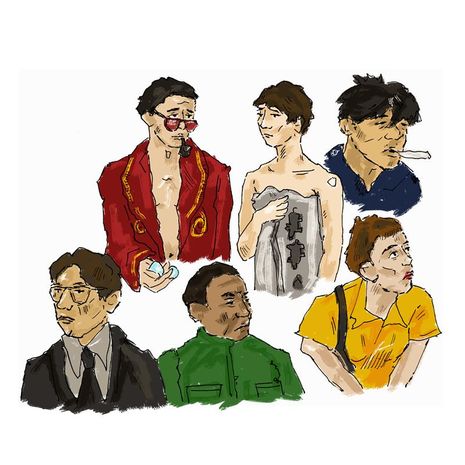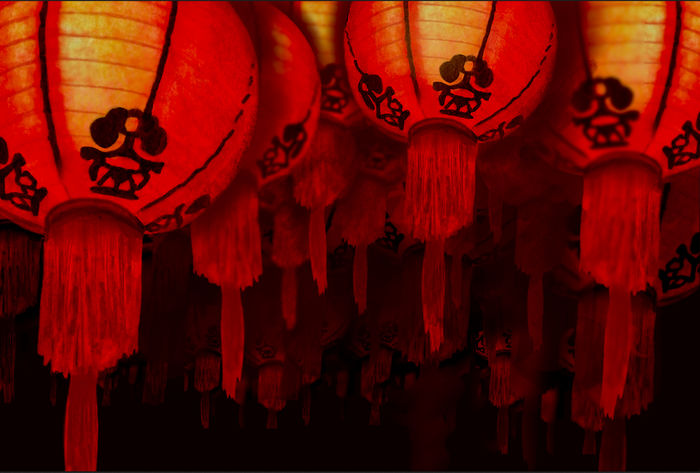Global Frames: Hong Kong
Hilary Lau explores how a multicultural heritage has shaped Hong Kong cinema

Owing to its unique historical background as a Chinese territory and later British colony, Hong Kongers grew up embracing traditional Chinese heritage, yet were also exposed to international influences and methods of storytelling. This multicultural environment allowed aspiring filmmakers to pivot from stories that focused solely on one culture, using trilingual dialogue to craft narratives that amalgamate cultures, making them both familiar and refreshing to Eastern and Western audiences alike. By retaining a degree of stability in the years of Chinese political turmoil and taking advantage of it to create networks into international cinema, Hong Kong was able to enter its golden age of filmmaking, placing it on the world map and giving rise to internationally-acclaimed stars like Bruce Lee and Jackie Chan. But kung fu isn’t all that Hong Kong cinema has to offer: from thrillers to comedies, to social commentary and romance, if you dig deep enough, there’s always something for you.
“Before there was Scorsese’s The Departed, there was Infernal Affairs”
Infernal Affairs (2002)
Before there was Scorsese’s The Departed, there was Infernal Affairs. The story follows Lau (Andy Lau), a gangster infiltrating the police force as a mole, and Chan (Tony Leung), a cadet that is sent undercover into the triad. The title is a witty play on the words ‘infernal’ and ‘internal’ signifying first the existence of an enemy from the inside, as well as the hellish experience of the two young men who slowly lose sight of their institutional allegiances. Though the premises of the films share similarities, Infernal Affairs is a unique allegory for Hong Kong’s in-betweenness after the 1997 Handover, reflecting the anxieties of the people whose relationship with Britain has been severed, and whose ties with the Mainland remain brittle. While Scorsese excels at amping up the tension with brutal combat and visceral death scenes, Infernal Affairs is more pensive, drawing out meaningful discussions of moral redemption and emotional turmoil that would have deeply resonated with the audiences of its time.
The Last Dance (2024)
“The Last Dance tackles all the taboos generally shunned in Asian society”
As more filmmakers challenge themselves to shed light on difficult topics, Hong Kong’s film industry has seen a renaissance in the post-COVID years, yet none have reached such record-breaking success as The Last Dance. The film became the highest-grossing domestic film in the history of Hong Kong cinema, and has since been nominated for Best International Feature Film for the 98th Academy Awards. Following mass unemployment during the COVID-19 pandemic, wedding planner Dominic (Dayo Wong) joins a funeral parlour and partners with Master Man, the priest in charge of the Taoist funeral rite known as ‘Breaking Hell’s Gate’. This movie tackles all the taboos generally shunned in Asian society – a mother who tries to mummify her long-dead son, a female partner of a married woman forbidden to see her in her final moments – yet all deal with a fundamental revelation: funeral rites are not only done for the dead, but also to comfort the living. In a society where discussions of death are generally kept under wraps, The Last Dance gracefully guides its audience through a somber contemplation of mortality, reconfiguring the mechanisms with which we deal with grief and transforming the act of mourning into a celebration of life.
From Beijing with Love (1994)
Director Stephen Chow specialises in comedies that combine slapstick humour with witty puns and social satire. His style of mo lei tau (‘nonsense’) comedy is one that transcends generational gaps, making him one of the most beloved household names in Hong Kong. The movie follows a secret agent 007 who is tasked by the country to recover a stolen T-Rex fossil which has been stolen by an elusive villainous mastermind Golden Gun. Several of Chow’s films parody traditional Chinese stories, such as A Chinese Odyssey (referencing Journey to the West) and Flirting Scholar (with characters based on the Four Masters of the Ming Dynasty). Yet this film in particular is a homage to James Bond films: the direct Cantonese translation of the title 國產凌凌漆 is ‘Domestically-produced 007’. With its wealth of references to local gags and movies of the era, From Beijing with Love is a treasure trove for audiences fluent in Cantonese, but also offers a lighthearted viewing experience for those who wish to experience the best that Hong Kong cinema has to offer.
 News / Cambridge academics sign open letter criticising research funding changes22 February 2026
News / Cambridge academics sign open letter criticising research funding changes22 February 2026 News / University Council rescinds University Centre membership20 February 2026
News / University Council rescinds University Centre membership20 February 2026 News / Supporters protest potential vet school closure22 February 2026
News / Supporters protest potential vet school closure22 February 2026 News / Hundreds of Cambridge academics demand vote on fate of vet course20 February 2026
News / Hundreds of Cambridge academics demand vote on fate of vet course20 February 2026 Comment / A tongue-in-cheek petition for gowned exams at Cambridge 21 February 2026
Comment / A tongue-in-cheek petition for gowned exams at Cambridge 21 February 2026








